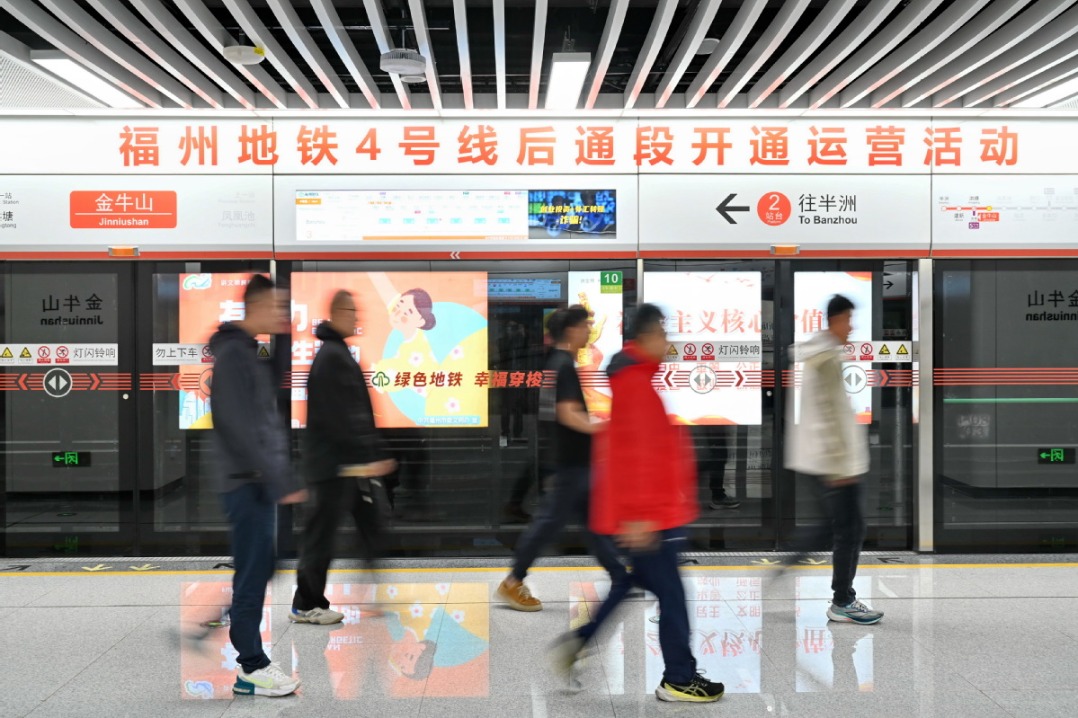Technology aiding in the fight against virus

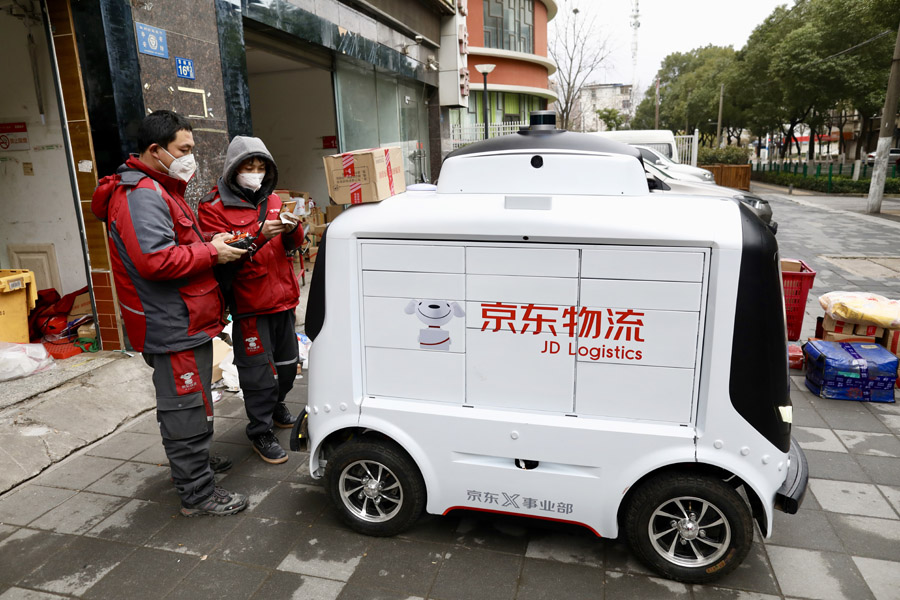
China has been stepping up technology-assisted efforts to contain the spread of the novel coronavirus, as technologies from facial recognition to artificial intelligence have been used in the ongoing fight against the epidemic.
As of Thursday at midnight, the number of confirmed infections of the novel coronavirus on the Chinese mainland climbed to 31,161, including 636 deaths, according to the National Health Commission.
With the number of confirmed cases rising both in Hubei, the center of the outbreak, as well as in other parts of China, local transport authorities nationwide have been taking full advantage of multiple technologies to effectively combat the disease.
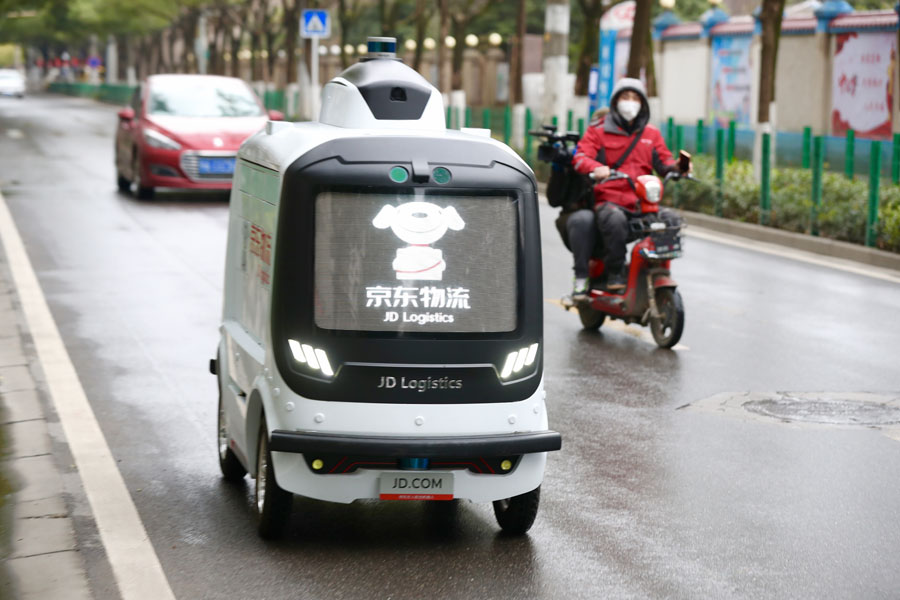
In Hubei's Wuhan city, which has been locked down since late January with all public transport suspended, quite a few delivery robots from e-commerce platform JD.com's logistics arm have been running on the streets to send parcels, to help sustain daily operations and curb the spread of the virus.
Kong Qi, director of JD Logistics' autopilot research and development department, said the robot can be loaded with around 30 parcels and is capable of all-around monitoring of the environment through radar and sensors, which helps avoid roadblocks and pedestrians. It can also utilize facial recognition to handing off the packages.

The robot began trial delivery service of medical supplies and daily necessities for healthcare workers in Wuhan Ninth Hospital on Thursday, one of the city's designated hospitals to admit patients infected with the new virus.
As human-to-human contact is discouraged across the country to reduce the risk of infection, the company has also transferred robots from other cities to Wuhan to cover more areas, including quarantined neighborhoods, to make sure unmanned delivery will be the norm within the virus-stricken city.
To better prevent infection, Guangzhou Communication Information Investment Group, a transportation infrastructure construction services provider in Guangzhou, Guangdong province, has rolled out a new function on the city's over 20,000 taxis to warn people who don't wear face masks starting Jan 31.
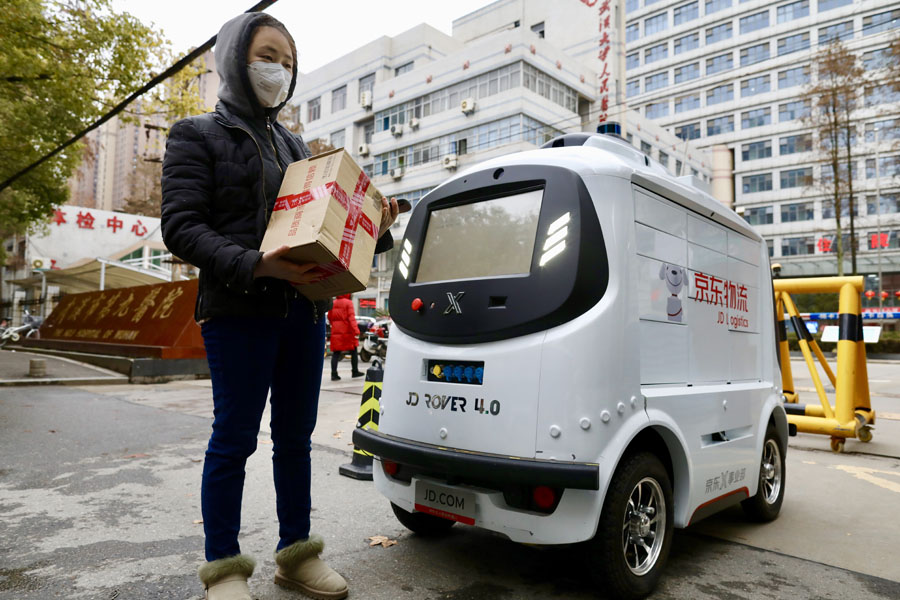
Both drivers and passengers will be verified by facial and action recognition technologies during the ride to check if they are wearing a mask. If the passenger is seen without a face mask at any time, it will remind them to put it back on.
Guangzhou, a major city for migrants, will see a large number of people rushing back to the city in the coming week. Wearing a mask can greatly reduce the possibility of getting infected, said Hu Peng, project manager at the company.
"With the new function, we can supervise and remind drivers and passengers online instead of launching outdoors inspections, which is less efficient," he said.
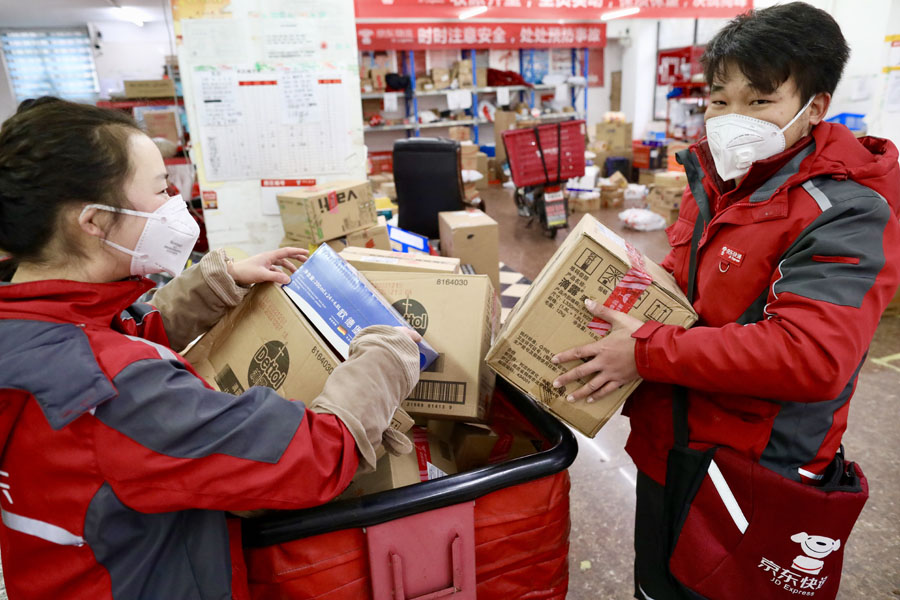
The transport authority in East China's Shandong province adopted a temperature screening tool that can help monitor human body temperatures in crowded transportation hubs, and identify individuals who might have a fever using facial recognition technology.
Coupled with big data and artificial intelligence, the system is also able to trace previous movements of people with abnormal temperature and find out others who might have close contact with them.
According to the department, it has already started piloting the technology in the highway service area in Jinan city, which will enhance health check efficiency and shorten wait times for drivers, as well as avoid cross-infection of people working on the frontline.
- Yanshiping, Xizang's highest railway station, begins service
- Beijing reports childcare, elderly support progress during 14th Five-Year Plan period
- Video offers new evidence of Japan's germ-warfare crimes in China
- China launches new internet satellite group
- China's grain output tops 714 million tons in 2025
- Chinese hydrogen-powered drone sets longest distance flight record





















